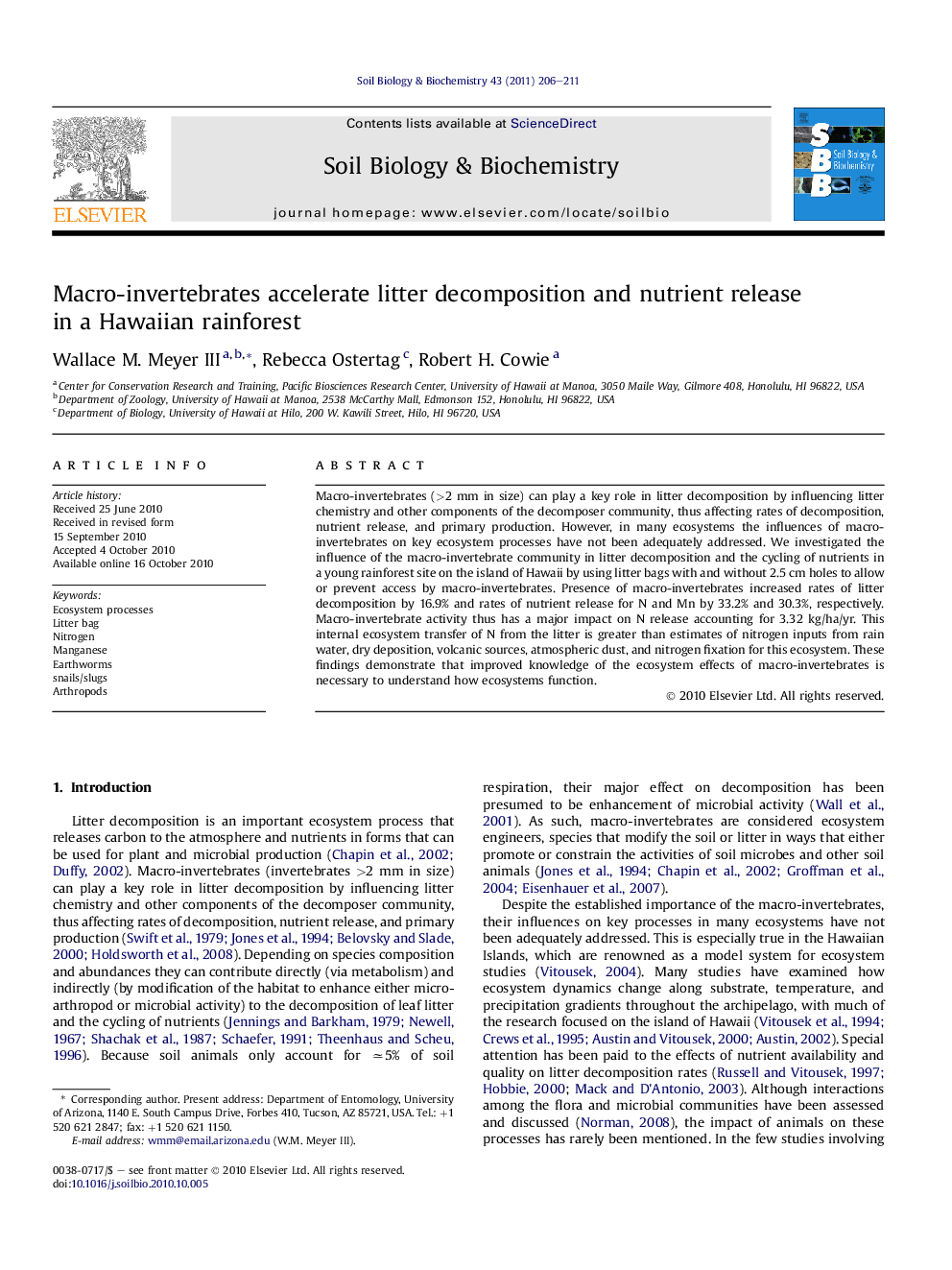| Article ID | Journal | Published Year | Pages | File Type |
|---|---|---|---|---|
| 2025723 | Soil Biology and Biochemistry | 2011 | 6 Pages |
Macro-invertebrates (>2 mm in size) can play a key role in litter decomposition by influencing litter chemistry and other components of the decomposer community, thus affecting rates of decomposition, nutrient release, and primary production. However, in many ecosystems the influences of macro-invertebrates on key ecosystem processes have not been adequately addressed. We investigated the influence of the macro-invertebrate community in litter decomposition and the cycling of nutrients in a young rainforest site on the island of Hawaii by using litter bags with and without 2.5 cm holes to allow or prevent access by macro-invertebrates. Presence of macro-invertebrates increased rates of litter decomposition by 16.9% and rates of nutrient release for N and Mn by 33.2% and 30.3%, respectively. Macro-invertebrate activity thus has a major impact on N release accounting for 3.32 kg/ha/yr. This internal ecosystem transfer of N from the litter is greater than estimates of nitrogen inputs from rain water, dry deposition, volcanic sources, atmospheric dust, and nitrogen fixation for this ecosystem. These findings demonstrate that improved knowledge of the ecosystem effects of macro-invertebrates is necessary to understand how ecosystems function.
Research highlights► Presence of macro-invertebrates increased rates of litter decomposition by 16.9%. ► Presence of macro-invertebrates increased rates of nutrient release for N and Mn by 33.2% and 30.3%, respectively. ► Macro-invertebrate activity thus has a major impact on N release accounting for 3.32 kg/ha/yr, which is greater than estimates of nitrogen addition from rain water, dry deposition, volcanic sources, atmospheric dust, and nitrogen fixation for this ecosystem.
